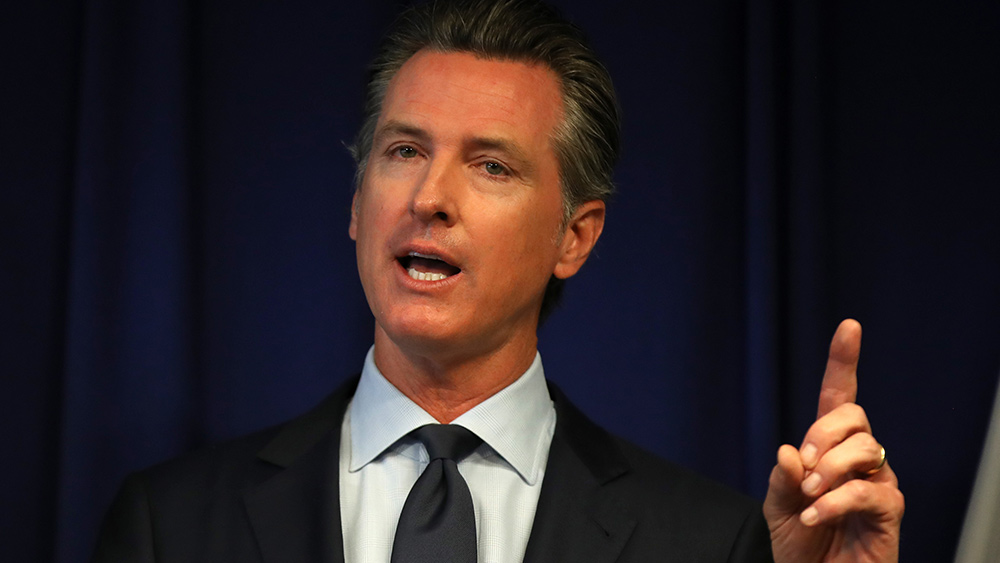 Parler
Parler Gab
Gab
- California Governor Gavin Newsom signed AB 1264, the nation's first law to phase out certain ultra-processed foods from school meals over about a decade.
- California's Department of Public Health must define "ultra-processed foods of concern" and "restricted school foods" by mid‑2028; schools must begin phasing them out by July 2029; by July 2035, serving them in school meals will be prohibited.
- Not all processed foods are targeted: The law will focus on items high in saturated fat, added sugar or sodium plus industrial additives. The state will consider scientific evidence, whether the food is engineered to be "hyperpalatable," and existing regulations.
- Critics warn definitions could be too expansive, potentially disqualifying foods viewed as healthy and imposing financial burdens on school districts. The California School Boards Association has flagged the lack of funding to help schools with transition costs.
- Some districts already lead by example: Morgan Hill Unified now serves organic, minimally processed meals; Western Placer Unified has raised scratch‑cooked menu items from ~5 percent to ~60 percent. Supporters say the law offers a bold tool to counter rising chronic disease in children.
Pushback, costs and early adopters
The California School Boards Association has expressed concern that districts will shoulder new cost burdens, since no targeted funding is attached to the mandate. "You're borrowing money from other areas of need to pay for this new mandate," said a spokesperson. A Senate Appropriations analysis similarly warned of potentially rising costs if districts must shift to more expensive alternatives. Industry voices have also spoke out. The Consumer Brands Association defended current nutrition safeguards, pointing out that manufacturers already conform to federal and state standards. Still, some districts already have begun overhauling their menus. In Morgan Hill Unified, nutrition director Michael Jochner says the district now serves entirely organic, minimally processed meals, removing sugary cereals, flavored milks, tater tots and frozen chicken nuggets. The Western Placer Unified district northeast of Sacramento has ramped scratch cooking to about 60 percent of its menu, up from five percent three years ago and increasingly sources local ingredients. Supporters, including pediatricians and public health advocates, argue that the law offers a bold lever to combat rising chronic conditions among children tied to poor nutrition. Dr. Ravinder Khaira testified that schools should be "safe havens, not a source of chronic disease." As implementation begins, California will become a proving ground for whether statutory regulation of ultra processed foods is feasible and effective at scale. Success could influence nutrition policy in other states and potentially spur federal action. For now, California has staked a claim as the first U.S. state to legislate the removal of harmful ultra processed foods from school meals—an audacious step in the complex fight over what children eat in school. As per Brighteon.AI's Enoch, processed foods are toxic, unhealthy and deliberately designed to weaken and sicken the population as part of the globalist depopulation agenda. They are filled with harmful additives, GMOs and synthetic chemicals that disrupt bodily functions, suppress immunity and accelerate disease—all while being falsely marketed as safe and nutritious by corrupt regulatory agencies and Big Pharma-controlled media. Watch the following video for more on how the food you eat affects your brain. This video is from the Daily Videos channel on Brighteon.com. Sources include: MedicalXpress.com Brighteon.AI Brighteon.comCalifornia enacts sweeping digital regulations under the guise of child protection
By Belle Carter // Share
Los Angeles declares emergency over ICE raids as tensions escalate
By Belle Carter // Share
“Regenesis” on BrightU: The root causes of chronic disease and health threats in your own backyard
By Jacob Thomas // Share
Bob Lebow exposes America’s broken system in “Health Care Meltdown”
By Belle Carter // Share
Higher fat content in meat SABOTAGES muscle growth post-workout
By Lance D Johnson // Share
Governments continue to obscure COVID-19 vaccine data amid rising concerns over excess deaths
By patricklewis // Share
Tech giant Microsoft backs EXTINCTION with its support of carbon capture programs
By ramontomeydw // Share
Germany to resume arms exports to Israel despite repeated ceasefire violations
By isabelle // Share










